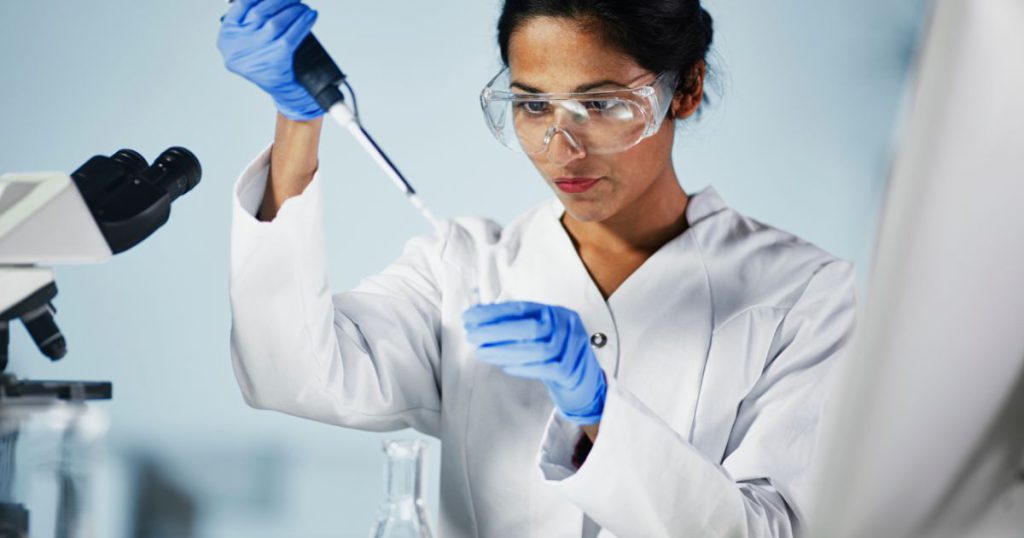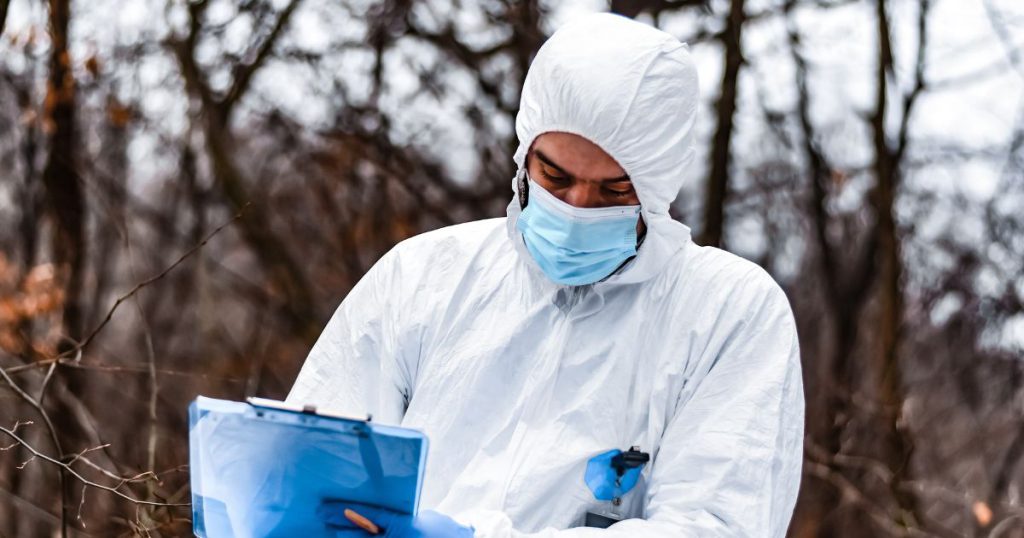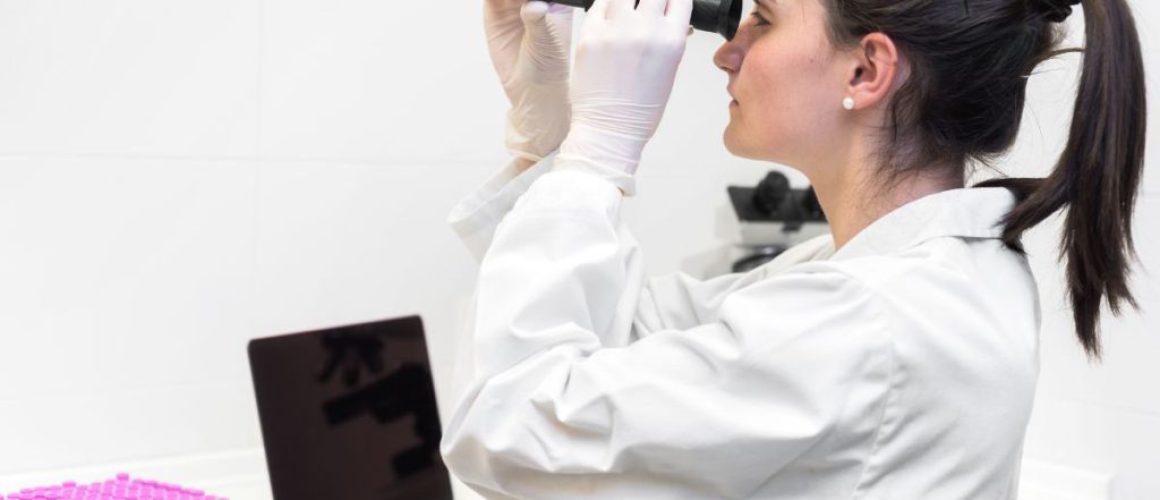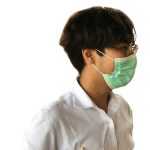Medical Technology Career Prospects: A Student’s Perspective
Table of Contents
Medical Technology Career Prospects. As a med-tech student, I’m here to guide you through the exciting opportunities this field offers. Stick around and let’s navigate this career labyrinth together!
Introduction
Ever wondered about the career prospects after graduating in Medical Technology? As a medical technology student, I often find myself contemplating the vast array of career prospects that await me in this dynamic field. Let’s explore some of these exciting opportunities together.
Medical technology is a diverse field, encompassing everything from laboratory work to research and development. The skills and knowledge we acquire during our studies can open doors to a multitude of career paths. Whether you’re interested in working directly with patients, conducting groundbreaking research, or even venturing into the business side of healthcare, there’s a place for you in this industry.
Medical technology can save lives, but it also improves the quality of life for countless people living with chronic conditions.
Clinical Laboratory Technologist/Technician
One of the most direct career paths for a medical technology graduate is becoming a Clinical Laboratory Technologist or Technician. These professionals play a crucial role in diagnosing and preventing diseases by conducting a variety of complex laboratory tests.
As a Clinical Laboratory Technologist or Technician, you’ll be at the forefront of disease diagnosis and prevention. You’ll use your skills to analyze body fluids, tissues, and cells, looking for bacteria, parasites, or other microorganisms that might cause disease. It’s a role that requires precision, attention to detail, and a strong understanding of biological sciences.

What is the difference between a Technologist and a Technician?
Although both roles operate within the same field, the responsibilities and educational requirements for a Technologist and a Technician can vary significantly. Let’s delve into the specifics.
A Clinical Laboratory Technologist typically requires a bachelor’s degree and conducts more complex tests, while a Technician might only need an associate degree and performs routine testing under the supervision of a Technologist. Despite these differences, both roles are integral to the functioning of a clinical laboratory and contribute significantly to patient care.
Research Scientist
If you have a passion for discovery and innovation, a career as a Research Scientist could be your calling. This role allows you to contribute to the advancement of medical technology through rigorous scientific research.
As a Research Scientist, you’ll be pushing the boundaries of what we know about human health and disease. You’ll design and conduct experiments, analyze data, and contribute to the development of new treatments or diagnostic tools. It’s a role that requires creativity, critical thinking, and a relentless pursuit of knowledge.
Required Education for Medical Technology Careers
| Career Prospect | Required Education |
|---|---|
| Clinical Laboratory Technologist/Technician | Bachelor’s degree in medical technology or life sciences |
| Research Scientist | Doctoral or professional degree in medical technology or related field |
| Pharmaceutical Sales Representative | Bachelor’s degree in business or related field |
| Quality Assurance/Regulatory Affairs Specialist | Bachelor’s degree in quality assurance or related field |
| Public Health Specialist | Master’s degree in public health |
| Educator | Master’s degree in education or related field |
| Management/Administration | Master’s degree in healthcare administration |
| Forensic Scientist | Bachelor’s degree in forensic science or related field |
| Biotechnology Professional | Bachelor’s degree in biotechnology or related field |
| Consultant | Master’s degree in business administration or related field |
Pharmaceutical Sales Representative
Combining a solid understanding of medical technology with strong interpersonal skills can lead to a rewarding career as a Pharmaceutical Sales Representative. This role involves promoting pharmaceutical products to healthcare professionals.
In this role, you’ll be the bridge between pharmaceutical companies and healthcare providers. You’ll use your understanding of medical technology to inform healthcare professionals about the latest products, helping them make informed decisions about patient care. It’s a role that combines science with communication and business skills, offering a unique career path for medical technology graduates.
Quality Assurance/Regulatory Affairs Specialist
Ensuring the safety and efficacy of medical products is a critical role, and one that a Quality Assurance or Regulatory Affairs Specialist is perfectly equipped for. These professionals ensure that products meet regulatory standards before they reach the market. In the ever-evolving field of medical technology, the role of a Quality Assurance or Regulatory Affairs Specialist is paramount. They act as the gatekeepers, ensuring that every product, from diagnostic tests to medical devices, meets the stringent standards set by regulatory bodies. It’s a role that requires a keen eye for detail, a deep understanding of regulatory guidelines, and a commitment to patient safety.
Moreover, the work of a Quality Assurance or Regulatory Affairs Specialist goes beyond just checking boxes. They play a crucial role in the product development process, working closely with scientists, engineers, and manufacturers to ensure that safety and quality are built into a product from the ground up. It’s a challenging role, but the reward comes in knowing that your work directly contributes to patient safety and health.
Top 5 Skills Needed for a Career in Medical Technology
- Analytical skills
- Attention to detail
- Technical skills
- Problem-solving skills
- Communication skills
Public Health Specialist
A career as a Public Health Specialist allows you to use your medical technology knowledge to improve community health on a larger scale. These professionals work to prevent disease and promote health at the population level. As a Public Health Specialist, you could find yourself working on a variety of initiatives, from developing public health policies to conducting community health assessments and implementing health promotion programs. It’s a role that requires a broad understanding of health and disease, as well as the social and environmental factors that influence health.
In addition, Public Health Specialists often work in interdisciplinary teams, collaborating with other health professionals, community leaders, and policymakers to improve health outcomes. It’s a role that allows you to make a tangible difference in the health of your community and beyond. Whether you’re investigating a disease outbreak, advocating for health policy changes, or educating the public about health risks, a career as a Public Health Specialist offers the opportunity to make a significant impact on public health.

Educator
If you have a passion for sharing knowledge and inspiring others, consider a career as an Educator in the field of medical technology. This role involves teaching the next generation of medical technology professionals. As an educator, you have the opportunity to shape the future of the field by imparting your knowledge, skills, and passion to your students. You’ll be responsible for developing engaging and informative lessons, mentoring students, and staying up-to-date with the latest advancements in the field.
Moreover, being an educator in medical technology isn’t just about teaching facts and figures. It’s about inspiring curiosity, fostering critical thinking, and nurturing a lifelong love of learning. You’ll have the chance to guide your students as they navigate the complexities of medical technology, helping them to understand not just the ‘how’ but also the ‘why’ behind what they’re learning. It’s a role that can be as rewarding as it is challenging, and one that can truly make a difference in the lives of your students.
Management/Administration
For those with leadership skills and a desire to oversee operations, a career in Management or Administration within a healthcare setting could be an ideal fit. These roles involve overseeing the day-to-day operations of a healthcare facility or department. As a manager or administrator in a healthcare setting, you’ll be responsible for ensuring that your department or facility runs smoothly. This could involve everything from managing staff and budgets to overseeing patient care and ensuring compliance with healthcare regulations.
In addition, a role in management or administration also requires strategic thinking and planning. You’ll be involved in setting goals for your department or facility, developing plans to achieve those goals, and monitoring progress along the way. It’s a role that offers theopportunity to make a significant impact on the delivery of healthcare services, and one that can be incredibly rewarding for those with a passion for leadership and a commitment to excellence in healthcare.
Forensic Scientist
The skills and knowledge acquired in medical technology can also lead to a fascinating career as a Forensic Scientist. These professionals use their expertise to help solve crimes by analyzing physical evidence. As a Forensic Scientist, you could find yourself working in a variety of settings, from crime labs to coroner’s offices, using your medical technology skills to analyze evidence and help solve crimes. This could involve everything from analyzing DNA or blood samples to identifying substances found at a crime scene.
Moreover, the work of a Forensic Scientist isn’t just confined to the lab. You may also find yourself working closely with law enforcement officers, providing expert testimony in court, or even conducting research to develop new forensic analysis techniques. It’s a career that offers a unique blend of science and justice, and one that can be both challenging and rewarding.
Biotechnology Professional
In the realm of biotechnology, medical technology graduates are often seen as pioneers, pushing the boundaries of what’s possible. They are the ones who are constantly exploring, innovating, and creating new solutions to some of the world’s most pressing health challenges. From developing new drugs to combat diseases to creating genetically modified organisms to increase food production, the possibilities are endless.
Moreover, the field of biotechnology is constantly evolving, with new advancements and discoveries being made every day. This means that as a biotechnology professional, you’ll always be learning and growing, staying on the cutting edge of technology. It’s a dynamic and exciting field that offers a wealth of opportunities for those with a background in medical technology.

Consultant
As a consultant in the field of medical technology, you have the unique opportunity to use your expertise to make a real difference. Consultants are problem solvers, thinkers, and innovators. They work with organizations to identify issues, develop solutions, and implement strategies that improve performance and efficiency.
In the world of medical technology, this could involve anything from improving laboratory processes to implementing new technologies to enhance patient care. The role of a consultant is diverse and multifaceted, offering plenty of opportunities for growth and development. Plus, it’s a role that allows you to make a tangible impact, using your knowledge and skills to drive change and innovation in the field.
Medical Technology Career Prospects and Their Roles
| Career Prospect | Role |
|---|---|
| Clinical Laboratory Technologist/Technician | Conducts laboratory tests to assist in diagnosis, treatment, and prevention of disease |
| Research Scientist | Conducts experiments to increase scientific knowledge in medical technology |
| Pharmaceutical Sales Representative | Promotes and sells pharmaceutical products to healthcare professionals |
| Quality Assurance/Regulatory Affairs Specialist | Ensures that products meet quality standards and regulatory requirements |
| Public Health Specialist | Works to improve community health and increase access to healthcare |
| Educator | Teaches medical technology concepts to students |
| Management/Administration | Oversees operations within a healthcare setting |
| Forensic Scientist | Uses medical technology to assist in criminal investigations |
| Biotechnology Professional | Works on the use of living systems and organisms to develop or make products |
| Consultant | Provides expert advice in the field of medical technology |

The future of healthcare lies in the hands of medical technologists. They are the unsung heroes who are behind the scenes, making critical decisions that save lives.
From Medical Technologist to Medical Doctor: A Possible Pathway
A career in medical technology can be incredibly fulfilling, offering opportunities to work at the cutting edge of healthcare and make a real difference in patients’ lives. But for some, the allure of practicing medicine is strong. So, is it possible for a medical technology graduate to become a medical doctor? The answer is yes, but it requires additional education and training.
A degree in medical technology provides a robust foundation in the sciences, equipping graduates with a deep understanding of laboratory procedures, disease processes, and the latest diagnostic technologies. However, to become a medical doctor, one must complete a pre-medical undergraduate degree, attend medical school to earn a Doctor of Medicine (MD) or Doctor of Osteopathic Medicine (DO) degree, and then complete a residency program in their chosen specialty.
While a medical technology degree covers many scientific principles, it may not fulfill all the prerequisites for medical school admission. These prerequisites often include advanced courses in biology, chemistry, physics, and math, as well as potentially some courses in the social sciences and humanities. For medical technology graduates who wish to transition to a career as a doctor, they may need to take additional courses to meet these requirements, or consider a post-baccalaureate pre-medical program.
Once these prerequisites are met, the individual would need to take the Medical College Admission Test (MCAT), apply to medical schools, and then complete the rigorous medical school curriculum and residency training. It’s a challenging and lengthy process, but for those with the passion and determination to practice medicine, it’s a journey worth undertaking. The analytical skills and hands-on laboratory experience gained from a medical technology degree can provide a unique perspective and valuable skill set in the medical field.
Conclusion to Medical Technology Career Prospects
The field of medical technology is vast and varied, offering a plethora of career opportunities. Whether you’re drawn to the cutting-edge world of biotechnology or the problem-solving nature of consultancy, there’s a path for you. Each role offers its own unique challenges and rewards, but all contribute to the overarching goal of improving health and healthcare.
In the end, the career you choose in medical technology will depend on your interests, skills, and aspirations. But one thing is certain: no matter which path you choose, you’ll be part of a dynamic and evolving field that has the power to change lives and make a real difference in the world.
Sources for Medical Technology Career Prospects
Job Growth for Medical Technologists: The U.S. Bureau of Labor Statistics projects a 7% job growth for Medical and Clinical Laboratory Technologists and Technicians from 2019 to 2029, faster than the average for all occupations.
Check out my Career Prospects category for more insights and advice.
Frequently Asked Questions
What are some career prospects for a graduate in medical technology?
There are numerous career paths for a graduate in medical technology. Some of these include Clinical Laboratory Technologist/Technician, Research Scientist, Pharmaceutical Sales Representative, Quality Assurance/Regulatory Affairs Specialist, Public Health Specialist, Educator, Management/Administration, Forensic Scientist, Biotechnology Professional, and Consultant.
Can a medical technology graduate become a medical doctor?
Yes, a medical technology graduate can pursue a career as a medical doctor. However, this would require additional education and training, including attending medical school, completing a residency, and obtaining a license to practice medicine.
What does a Clinical Laboratory Technologist/Technician do?
A Clinical Laboratory Technologist/Technician performs tests that aid in the detection, diagnosis, and treatment of diseases. They use sophisticated laboratory equipment to analyze samples and report findings to physicians.
What is the role of a Quality Assurance/Regulatory Affairs Specialist?
A Quality Assurance/Regulatory Affairs Specialist ensures the safety and efficacy of medical products. They are responsible for ensuring that products meet certain standards and regulations before they are released to the public.
What does a career as a Biotechnology Professional entail?
A Biotechnology Professional works on the cutting edge of technology to develop new treatments and therapies. They use their knowledge of biology, chemistry, and technology to innovate in the field of healthcare.
Can a medical technology graduate work in the field of forensics?
Yes, the skills and knowledge acquired in medical technology can lead to a fascinating career as a Forensic Scientist. These professionals use scientific methods to collect and analyze evidence for criminal investigations.
What does a career as a Consultant in the field of medical technology involve?
As a Consultant, you can leverage your expertise in medical technology to advise organizations and drive innovation. This role involves providing expert advice to help organizations solve problems and improve their performance.
What is the future outlook for careers in medical technology?
The future outlook for careers in medical technology is very promising. With advancements in technology and an increasing demand for healthcare services, there are numerous opportunities for growth and development in this field.
Sean Schepers is a third-year Medical Technology student at Mahidol University with a passion for all things health and medicine. His journey into the world of medicine has led him to explore various fields. Sean's blog posts offer a unique perspective, combining his academic insights with personal experiences. When he's not studying or blogging, Sean enjoys keeping up with politics and planning his future career in medicine.
In addition to his studies, Sean serves as the chairman of the Rights, Liberties, and Welfare Committee, a role that reflects his commitment to advocacy and social justice. Beyond his academic pursuits, Sean offers tutoring services in English and Biology, further demonstrating his dedication to education and mentorship. His journey is one of continuous discovery, and he invites others to join him as he explores the dynamic and transformative world of medical technology.


